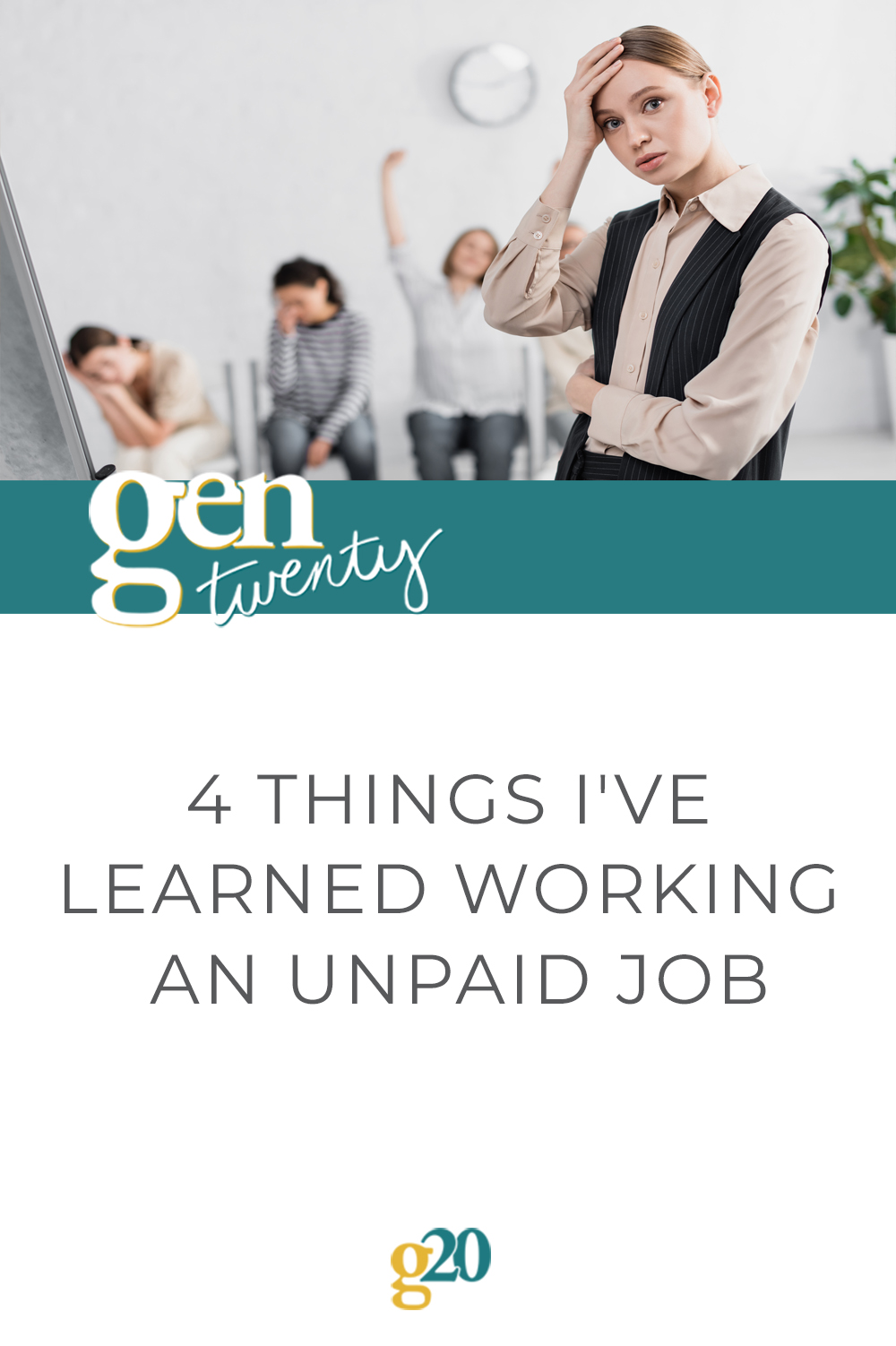Over the summer of 2020, I applied for a program assistant position, a job that I thought I was perfectly qualified for. The CEO turned me down for the role and offered me an unpaid fellowship instead. I took the opportunity because I thought it would be a good way to transition into my desired field. My experience was very different from what I had originally envisioned and hoped for. Here are 4 things I’ve learned working an unpaid job.
4 Things I’ve Learned Working an Unpaid Job
1. An Unpaid Job Doesn’t Always Set You On Your Desired Career Path
Shortly after I was onboarded, I agreed to spearhead the organization’s social media strategy as head of the organization’s communication. Here I was, in charge of a team.
Let me be clear: there are some things that I was happy to take on. For instance, I was happy to take on a leadership role because I gained managerial experience. I also honed my design skills, which had become quite rusty by that point.
However, spearheading the company’s social media strategy did not allow me to develop the skill sets that I needed to develop in order to transition more effectively into my desired field. By staying in my comfort zone of communications work, I did not allow myself to develop a new skill that would have been far more useful in this transition.
This is something that I take full responsibility for, as I willingly agreed to spearhead the organization’s marketing. However, in retrospect, I wish I had taken the time to determine what my weaknesses were, and how I could have used this position to hone those specific skills.

2. An Unpaid Job Can Wreak Havoc On Your Self-Esteem
I felt pressured to take on the additional responsibility of teaching an 8-week language class online, both from the organization, and some of the people around me. Thinking that it would help me develop program design and implementation skills, I did so, despite the fact that I had just come off of nearly 3 years teaching English abroad.
This meant that in addition to the 30 hours a week I was committing to the organization, I was also committing an additional 16+ hours in order to fulfill that new commitment.
While teaching a language online did give me valuable skill sets, balancing teaching, spearheading the organization’s social media, and job hunting became increasingly difficult. Eventually, I had to admit the truth to myself: something had to give. My mental and physical health began to suffer because of the demands on my time.
This experience has taught me to be very deliberate about where I invest my time and energy. I’m not saying that everything you take on has to compensate you financially, but I do know that no job is worth more than your physical or mental health.
3. You Can Leave
I have prided myself on being someone who fulfills commitments from a young age. When I was in my early 20’s, I heard a keynote speech where the speaker said that she knew it was time to leave “when I had too much self-respect to stay.” That has stuck with me.
Over the years, I have engaged in what recruiters would call job-hopping. I have mixed feelings about it. On one hand, I know that potential employers like to see loyalty and growth. On the other hand, I also understand that it is common for people in their twenties to change jobs frequently.
I have also had several health issues, which has taught me that no job is worth your physical or mental health. I have chosen to seek new opportunities when I have felt my mental or physical health becoming compromised, but that doesn’t mean that that is the right choice for everyone.
It is important to make the best choice for yourself, regardless of what you choose to do.

4. You Are Replaceable
This may sound harsh, but hear me out. Volunteers are plentiful. Organizations will always need help. There will always be new volunteers eager to help out when you decide to move on.
This does not mean that you should not do the best you can while you are in your role. You should always try to leave a positive impression and leave on good terms without burning any bridges; you never know how this experience will benefit you further down the line. Networking and asking for recommendations are just two examples of how volunteering or unpaid jobs could lead to something for you further down the line.
While I’m aware that the perception of the phrase, “You are replaceable,” may differ from person to person, for me personally, the knowledge that the organization is always ready to replace me with another volunteer is something that motivates me to put my best foot forward and give 100% of my efforts to each respective task at hand.
Working an unpaid job during a pandemic is not something that I would want to repeat. However, in the words of Randy Pausch, “Experience is what you get when you didn’t get what you wanted.” Those words stuck out to me when I first heard them as a high school senior, and continue to stay with me to this day.
This post was contributed anonymously.
